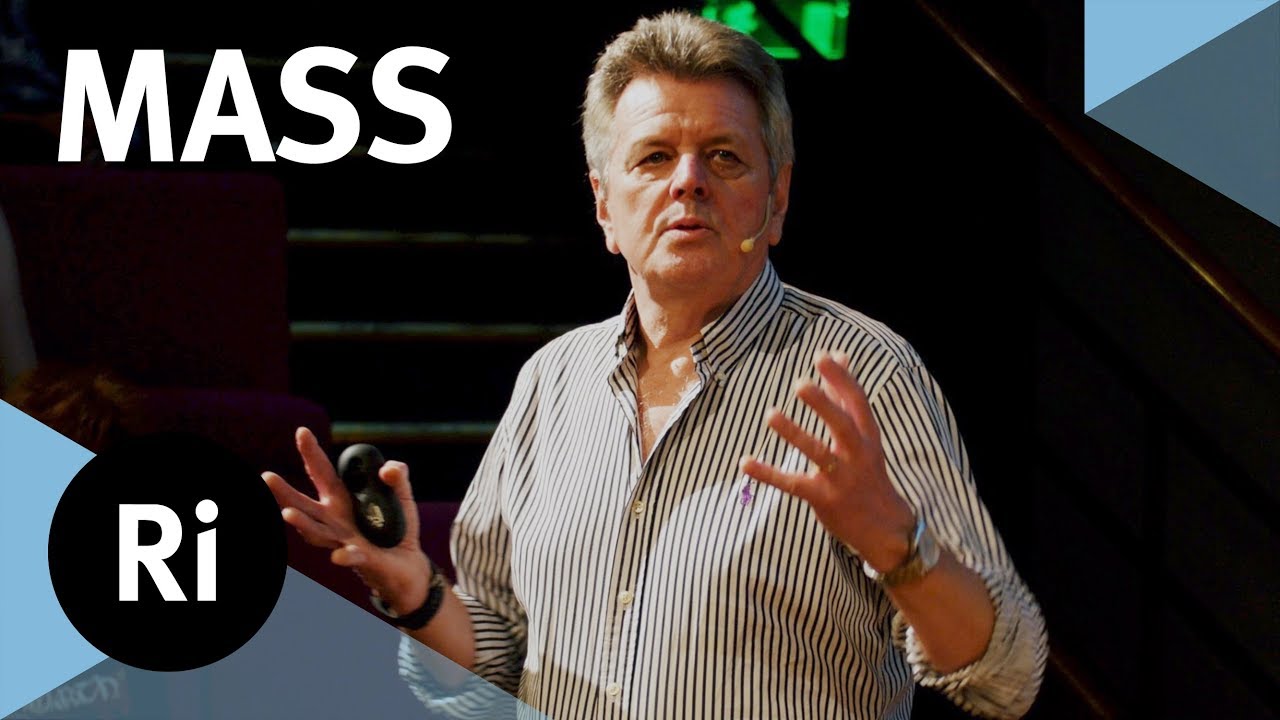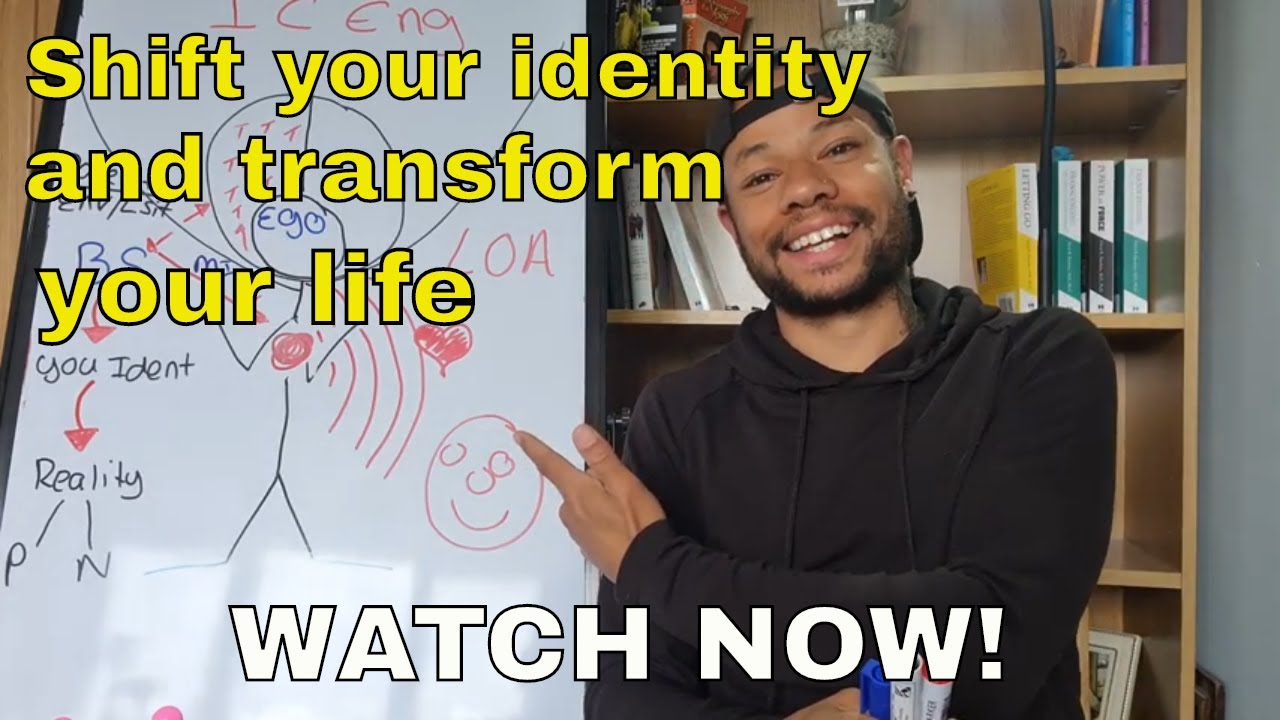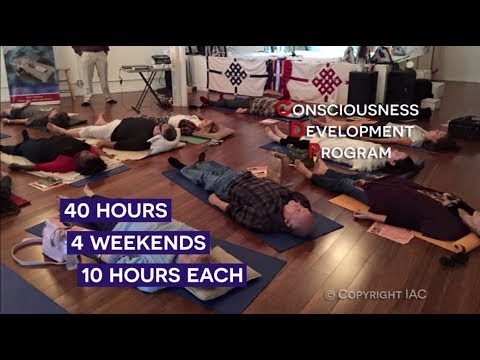The Royal Institution
Everything around us is made of ‘stuff’, or matter. But what is it, exactly?
Subscribe for regular science videos: http://bit.ly/RiSubscRibe
Jim Baggott will explore our changing understanding of the nature of matter, from the ancient Greeks to the development of quantum field theory and the discovery of the Higgs boson.
Jim Bagott is an award-winning science writer. He trained as a scientist, completing a doctorate in chemical physics at the University of Oxford in the early 80s, before embarking on post-doctoral research studies at Oxford and at Stanford University in California.
The Ri is on Twitter: http://twitter.com/ri_science
and Facebook: http://www.facebook.com/royalinstitution
and Tumblr: http://ri-science.tumblr.com/
Our editorial policy: http://www.rigb.org/home/editorial-policy
Subscribe for the latest science videos: http://bit.ly/RiNewsletter
Source




I appreciate. the understanding of science thru the logic used by those who made the discoveries.It creates much easier system to learn by.This method creates a leaning process that appeals to natural intuitive thinking students can relate to.Excellent lecture
how much does energy weigh
I got a question about the last part. Jim was talking about the energy from gluons between the protons and neutrons that make the most mass of an atom because it hols so much energy. Than what about Hydrogen? It has nothing to glue to.
wave duality is like a surfer becoming the wave. Imagine a surfer becoming a wave! Or a wave becoming a surfer! That would would be strange!
I have always thought that the concept of mass is nearly fully explained by General Relativity. The only experience we have of mass is gravitational mass and inertial mass.
General Relativity explains that mass curves spacetime and mass reacts to curved spacetime so we are nearly there in explaining fully the property mass. The missing part of the explanation is to explain how mass curves spacetime and why mass reacts to spacetime curvature. There is no need for a Higgs field in this explanation.
Instead we have to look more deeply at the fundamental nature of electrons, protons and neutrons as looped waves in spacetime.:
https://www.academia.edu/5038836/The_Unification_of_Physics
Richard
Very interesting! And Jim Baggott, the speaker is :1)very intelligent and 2)very funny! Thanks for putting it up. David
To a hammer everything looks like a nail. Why is it assumed that the pattern from the two slit experiment is the result of wave phenomenon. Maybe, it's just the way particles distribute themselves after passing through the slit. Why?
Really borring ?
this guys really knows how to make a talk long and boring
Particles are emergent from the configuration of empty space
I only clicked this cos i thought "whuut? Sledge Hammer doing physics????"
Supper excellent explanation, Thank you very much
So mass is acquired, not a property. It's like jumping in water. You get wet, but being wet is not a fundamental property. It's acquired because of the interaction between you're body and water much like mass is acquired trough the interaction between the Higgs field and the stuff within a atom. Interesting!!
Condensending waste of time. Humor? Not a comedian. This elementary stuff has been repeated ad nauseam on YouTube, and done with better graphics. If you want to lecture at least search what's out there.
46:39 Get off the glutons.
If the particle is massless, then, can it still be considered a particle? Must a particle, by definition, be 3-dimensional? Must a particle, to be called a particle, contain substance? ??
Hmmm, if not, then, once at the speed of light, attained, it can be said that this object no longer acts particle-like, but, possibly, as some type of wave. Which may, at this level, be what matter derives (rides) from. Picture it, traveling from the speed of light, these things begin a descent, a slowing down, if you will, upon arrival into or under the influence of some type of electromagnetic force. Then, once at a speed that has slowed far below the speed of light, the object’s decreased velocity allows for substantial clumping into, or back into any 3-dimensional body of particulate with accumulate mass.
This seems to be the only way that we can justify saying “ something isn’t derived from nothing”. Otherwise, we will forever play, “ What came first, the chicken or the egg antics” in our explanation of
“The origins of mass”.
"Nothing comes into being out of what is non-existent"
Except…………………………the universe.
Mass is energy and weight is interaction with gravity. -Nassim Haramein
Why is this guy speaks here at the royal society? He didn't say anything useful.
Never try to make any particular at toppest pls
Mass was a fundamental concept that has always been undefined and was believed to be an unchanging intrinsic property of any and every "matter". Mass was supposed to be measurable and its measurement is supposed to be invariable. However, it turns out that the measurement of mass of an object is not constant and depends on gravity. So, the concept of mass was somewhat shaky. Newtonian physics tried to rescue this shakiness by developing his gravitation force theory.
But with the development of Einstein's relativity theory, mass is no longer a fundamental concept, even though most if not all physicists are still talking about it in their models. Even by taking into account the changes in gravity, mass itself, not just its measurement, is not invariable. It turns out that light, not matter, has become a fundamental concept. What factors or variables will change mass? We don't know because it is not well defined in the first place. So, if you see an equation with the variable m in it, forget about it!
This was a rather bloated talk.
Strangest talk so far, 90% was most simple of the lectures, but he made pretty good points and for the first time in these lectures I was using rewind.
Jump to about 30:00 to avoid the boring history bit that everyone already knows.
Thank you very much, Mr. Baggott, for your superbly explaining "The Concept Of Mass". You are a phenomenal Physicist.
If mass is overwhelmingly the result of gluon interactions between quarks, and disparate elements display disparate masses, then wouldn't the resonant frequencies of those gluon interactions also be determinative of the total energy inherent in an atomic system?
Being beholden to the theory of space-time necessitates the consideration of a frequency component.
Perhaps gravity itself is determined also by frequencies far higher than our collective understanding yet allows!
Thank you RI, but that was a difficult watch
Is a particle traveling at the speed of light a string or a membrane?
27:24 …there so much wrong with this statement … "the act of observing" ,what they don't tell you is how it is "observed", to see an electron or track an electron you don't use a super microscope, you have to hit it with other particles (radiation, fotons, other electrons, or some other particles ) and "deduce" what happens from the result of that collision … and so doing it , it collapses from wave to particle! … quantum mechanics its not voodoo … it is just hard to understand ,because the physics and forces at microscopic level are a little different from macro physics! … and the way scientists explain some of this …. its just stupid from my understanding.
No, you don't need a reason to write a book. I can know; I wrote several.
There are GALAXIES that travel faster than the speed of light and they are not flat 2D objects!!! all this is just rubbish!!
Jeans really should not come in that size.
Thanks for video.
Mass is a whirlpool of charges
S2 p6 d10 f14. Ev/c^2=m/Q
r t concepts of space-time
Wavelength = 2*pi*r. Vol/sa=r/3
T=2*pi*t. t= d(t)=1
Q is the only object. Ev=d(R)
Q is chi force in asia
I is linear current
Magnetism O is I orbital current
Mass is precess of O I current loops.
Power = d(m)/d(Q) change
i liked him of being overconfident and liked audience for their patience
Typical Euro-centric treatment of the period between the Greek and the enlightenment: nothing really happened.
The guy who developed a part of mathematics we now call algebra and who's name gave rise to the word algorithm was born in the 9th century.
His book on algebra (the name algebra is derived from it's title actually) was translated and used until the 16th century in our universities.
His name is Muhammad ibn Musa al-Khwarizmi.
Is the RI doing TedX now ?
RI HAS GREAT LECTURES ! THANK YOU VERY MUCH !
Have you critically reviewed the work of Thad Roberts in his book "Einstein's Intuition"? If not, he proposes a theory of quantized space and Louis de Broglie's pilot wave theory. I would be interested in a reasoned review.
Sit through 30 mins of lecture before the first political BS. Not too bad for an RI program
What are they using to look at the electron? When we look at something we see reflective lightwaves we need light to see. But how do you video tape an electron? Are you sending waves of light and reading the reflection of the elsectron? Is it annother form of looking? Are you using micro waves or electromagnetic waves? There is only one way to see and that is to not see. What he is talking about makes no sense how can you see something that small without disturbing the outcome?
Mass, the behaviour of energy in patterns. #3767
Another excellent talk at the RI. With global access to the internet and scientific talks such as this one it is baffling that so many people are not even remotely scientifically literate. What a shame. People are captivated by supernatural nonsense but fail to see the real amazement of the natural world. Thanks RI for your ongoing contributions to the spreading of knowledge.
Sad that I don't see any other comments noticing the use of elemental symbols from Avatar: The Last Airbender.
I enjoyed this lecture and how he would pause for a second or two so I could soak in and understand a point he made. I am an older black guy living in the south suburbs of Chicago with less than two years of college but I’ve always have been curious about the world and am glad I’m living in 2019 and know how to use the smartphone iPhone my daughter taught me how to use. I appreciate I can learn so many different legitimate things I couldn’t learn otherwise without a financial cost I cannot afford and without an unnecessary degree. Thank you for posting all of your videos.